Filter by

Methuselah's Zoo: What Nature Can Teach Us about Living Longer, Healthier Lives
Stories of long-lived animal species—from thousand-year-old tubeworms to 400-year-old sharks—and what they might teach us about human health and longevity. Opossums in the wild don't make it to the age of three; our pet cats can live for a decade and a half; cicadas live for seventeen years (spending most of them underground). Whales, however, can live for two centuries and tubeworms for s…
- Edition
- -
- ISBN/ISSN
- 9780262370592
- Collation
- -
- Series Title
- -
- Call Number
- -
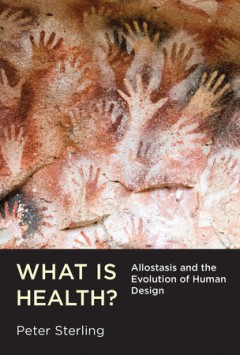
What Is Health?: Allostasis and the Evolution of Human Design
An argument that health is optimal responsiveness and is often best treated at the system level. Medical education centers on the venerable “no-fault” concept of homeostasis, whereby local mechanisms impose constancy by correcting errors, and the brain serves mainly for emergencies. Yet, it turns out that most parameters are not constant; moreover, despite the importance of local mechanism…
- Edition
- -
- ISBN/ISSN
- 9780262356299
- Collation
- -
- Series Title
- -
- Call Number
- -
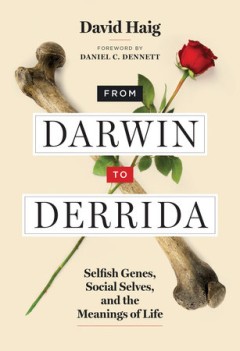
From Darwin to Derrida: Selfish Genes, Social Selves, and the Meanings of Life
How the meaningless process of natural selection produces purposeful beings who find meaning in the world. In From Darwin to Derrida, evolutionary biologist David Haig explains how a physical world of matter in motion gave rise to a living world of purpose and meaning. Natural selection, a process without purpose, gives rise to purposeful beings who find meaning in the world. The key to this…
- Edition
- -
- ISBN/ISSN
- 9780262358026
- Collation
- -
- Series Title
- -
- Call Number
- -
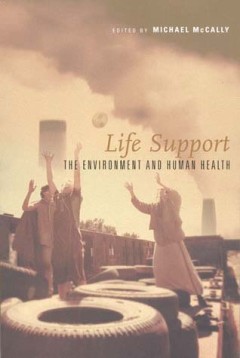
Life Support: The Environment and Human Health
A solutions-oriented examination of the connections between environmental degradation and human health.Life Support brings together the best medical information available on the implications for human health of the global environmental crisis. Written by prominent physicians and public health experts who see environmental degradation as a serious threat to public health, it provides essential i…
- Edition
- 1
- ISBN/ISSN
- 9780262279338
- Collation
- -
- Series Title
- -
- Call Number
- -
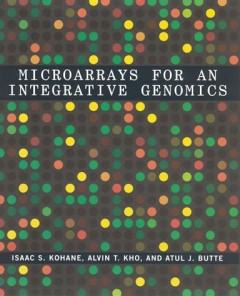
Microarrays for an Integrative Genomics
Functional genomics--the deconstruction of the genome to determine the biological function of genes and gene interactions--is one of the most fruitful new areas of biology. The growing use of DNA microarrays allows researchers to assess the expression of tens of thousands of genes at a time. This quantitative change has led to qualitative progress in our ability to understand regulatory process…
- Edition
- 1
- ISBN/ISSN
- 9780262277372
- Collation
- -
- Series Title
- -
- Call Number
- -

The Evolution of the Sensitive Soul: Learning and the Origins of Consciousness
A new theory about the origins of consciousness that finds learning to be the driving force in the evolutionary transition to basic consciousness. What marked the evolutionary transition from organisms that lacked consciousness to those with consciousness—to minimal subjective experiencing, or, as Aristotle described it, “the sensitive soul”? In this book, Simona Ginsburg and Eva Jablo…
- Edition
- -
- ISBN/ISSN
- 9780262351096
- Collation
- -
- Series Title
- -
- Call Number
- -
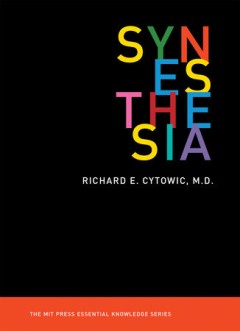
Synesthesia
An accessible, concise primer on the neurological trait of synesthesia—vividly felt sensory couplings—by a founder of the field. One in twenty-three people carry the genes for the synesthesia. Not a disorder but a neurological trait—like perfect pitch—synesthesia creates vividly felt cross-sensory couplings. A synesthete might hear a voice and at the same time see it as a color or sh…
- Edition
- -
- ISBN/ISSN
- -
- Collation
- -
- Series Title
- -
- Call Number
- -
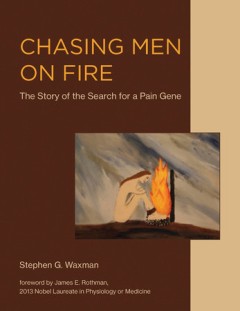
Chasing Men on Fire: The Story of the Search for a Pain Gene
A thirty-year quest, from genes to pain-signaling neurons to people with a rare genetic disorder that makes them feel they are on fire. Two soldiers, both with wounds injuring the same nerve, show very different responses: one is disabled by neuropathic pain, unable to touch the injured limb because even the lightest contact triggers excruciating discomfort; the other notices numbness but no…
- Edition
- -
- ISBN/ISSN
- 9780262344722
- Collation
- -
- Series Title
- -
- Call Number
- -

Choosing Down Syndrome: Ethics and New Prenatal Testing Technologies
An argument that more people should have children with Down syndrome, written from a pro-choice, disability-positive perspective. The rate at which parents choose to terminate a pregnancy when prenatal tests indicate that the fetus has Down syndrome is between 60 and 90 percent. In Choosing Down Syndrome, Chris Kaposy offers a carefully reasoned ethical argument in favor of choosing to have …
- Edition
- -
- ISBN/ISSN
- 9780262345729
- Collation
- -
- Series Title
- -
- Call Number
- -
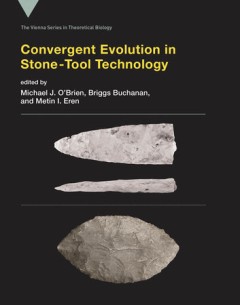
Convergent Evolution in Stone-Tool Technology
Scholars from a variety of disciplines consider cases of convergence in lithic technology, when functional or developmental constraints result in similar forms in independent lineages. Hominins began using stone tools at least 2.6 million years ago, perhaps even 3.4 million years ago. Given the nearly ubiquitous use of stone tools by humans and their ancestors, the study of lithic technology o…
- Edition
- -
- ISBN/ISSN
- 9780262346160
- Collation
- -
- Series Title
- -
- Call Number
- -
 Computer Science, Information & General Works
Computer Science, Information & General Works  Philosophy & Psychology
Philosophy & Psychology  Religion
Religion  Social Sciences
Social Sciences  Language
Language  Pure Science
Pure Science  Applied Sciences
Applied Sciences  Art & Recreation
Art & Recreation  Literature
Literature  History & Geography
History & Geography